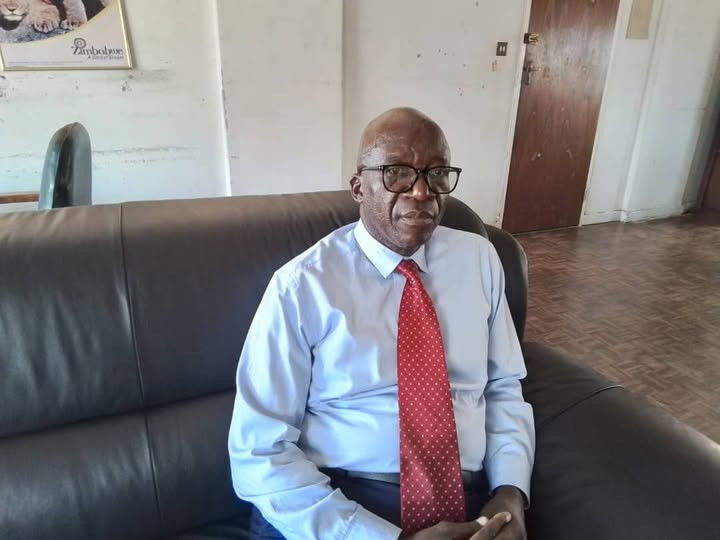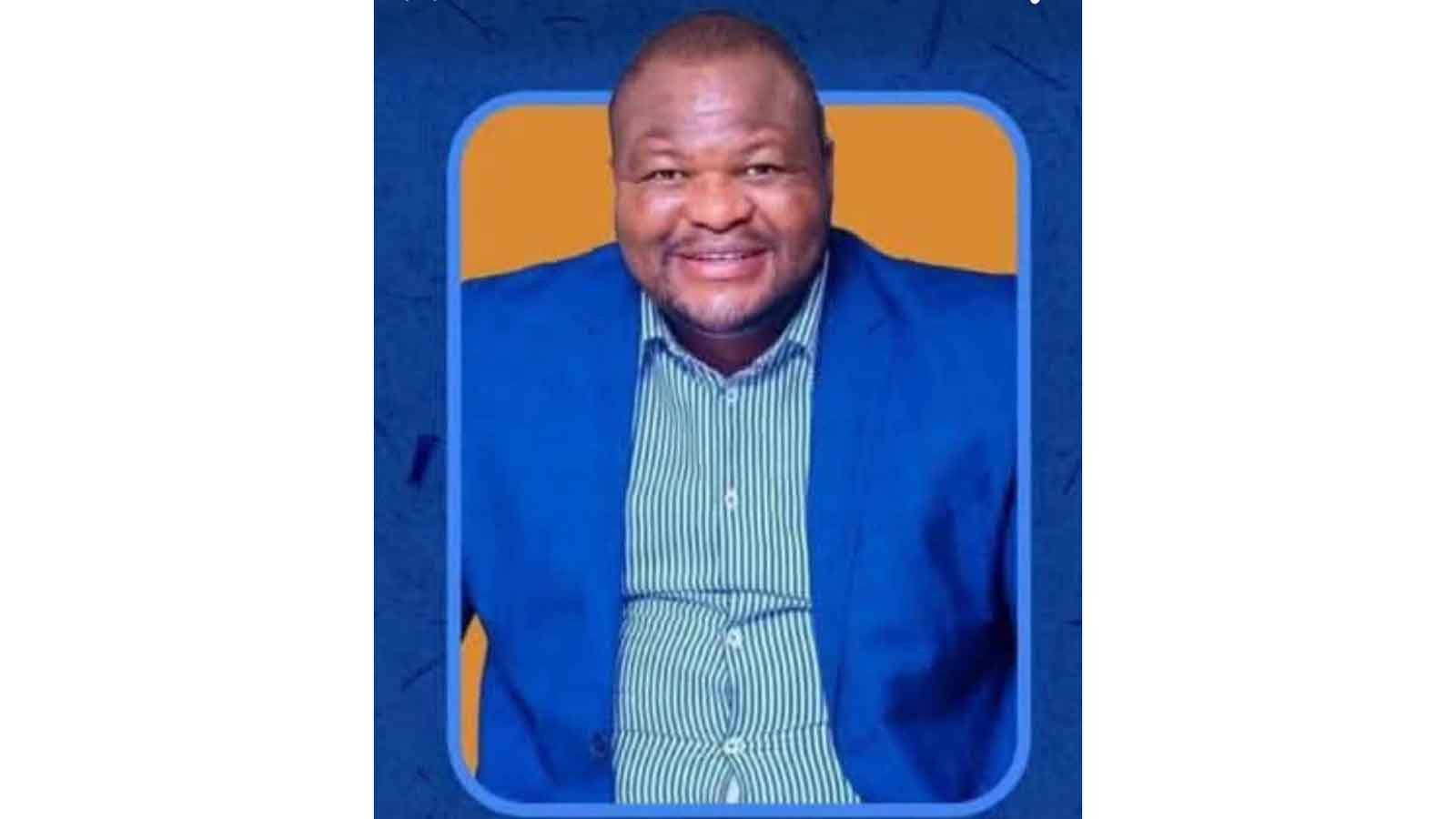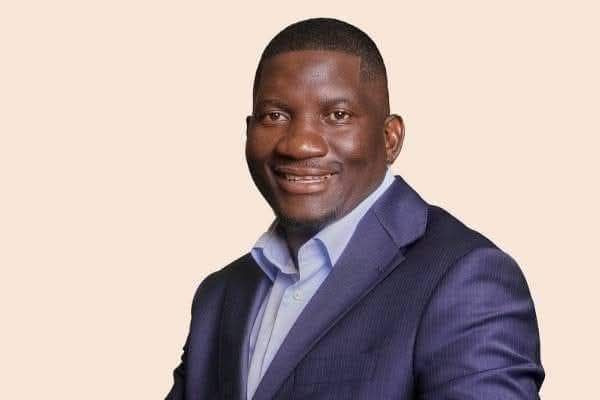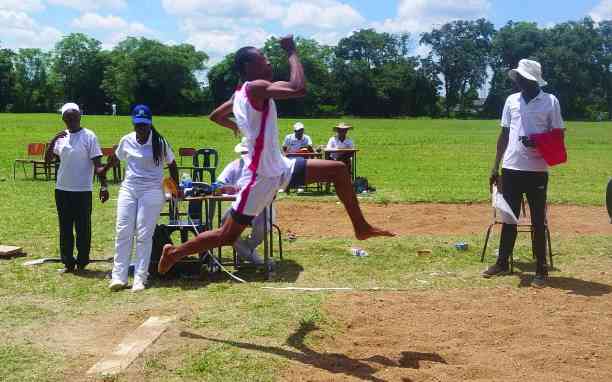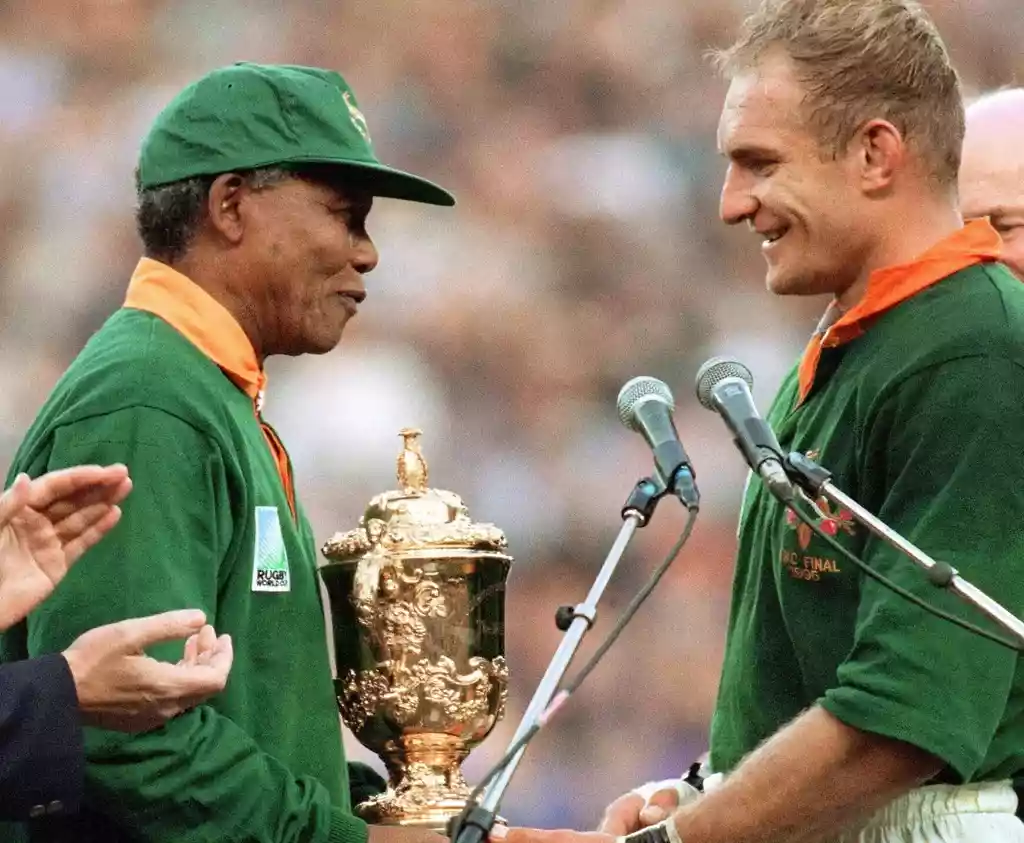
We may know that Horatio Nelson was a famous British naval officer who achieved a number of glorious victories against his French enemies in the late eighteenth and early nineteenth centuries. It may well be that, a hundred years later, a Primary School teacher in Qunu, Miss Mdingane, was inspired by the exploits of Lord Nelson and gave a young boy in her class the name of Nelson when he arrived at school. It was certainly an inspired choice of name as this young boy was none other than Nelson Mandela, who in his lifetime perhaps eclipsed even his namesake. “Hooray” to her!
Nelson Mandela was quite simply an extraordinary man; no-one could ever say otherwise. Many will argue that his exceptional leadership qualities were formed and forged in the harrowing experiences he encountered in prison, stuck in a tiny cell. However, it may not be too fanciful to consider that much of his greatness perhaps also stemmed from his sporting background. Before his imprisonment he was a keen boxer and even while in prison he kept fit, even in that afore-mentioned tiny cell.
It was perhaps no surprise therefore that when the Laureus Sport For Good Foundation was formed in 2000, with numerous sporting legends from different sporting backgrounds being inducted, it was to Nelson Mandela that they turned to deliver the opening speech. It was clear that he understood people and politics but, as history has also shown, he understood sport. His remarks at the initial awards ceremony highlight this clearly.
“Sport,” he said, “has the power to change the world”. He most obviously used sport to change South Africa during the Rugby World Cup in 1995, getting the whole nation behind the previously apartheid-backed sport of rugby. He went on to explain this by saying that “It has the power to inspire, it has the power to unite people in a way that little else does.” We might pause for a moment on that thought, to underline that it has the power to do all of that (to change, inspire, unite) but it is not a guarantee; it also, and equally, has the potential to divide, deflate and destroy, as evidenced by fighting between opposing fans in sporting arenas.
Most significantly for us though (in these articles) is what Mandela said next in that speech: “It speaks to youth in a language they understand.” People may speak different national or cultural languages but they all understand the language of sport; sport speaks across school traditions, across cultures, across borders. They all understand what winning and losing means; they all understand what is required to attain the victories. Indeed, they all may experience the reality of Lord Nelson’s statement that “First gain the victory and then make the best use of it you can”.
The youth may not understand other languages here in this country or around the world but they all have the ability and the opportunity to learn the language of sport. They all understand the passion and excitement that sport can generate. They all learn how important teamwork and collaboration are. They all can know how important good health and the sense of belonging to a group, to a cause, is. They all speak the language of growth, of progress, of hard work. They all learn the language of how to handle success and failure, through sport.
It is interesting too that Mandela added in that same speech that “Sport can create hope, where once there was only despair.” There is an echo there of the well-known prayer of St Francis of Assisi with the lines “Lord, make me an instrument of your peace. Where there is hatred, let me sow love; Where there is error, truth; Where there is injury, pardon; Where there is doubt, faith; Where there is despair, hope; Where there is darkness, light; And where there is sadness, joy.” Sport can do all that – and more. Young people of all languages can learn that essential language. Mandela lived it.
We say, “Bravo to Horatio Nelson” and we say “Hooray to Nelson Mandela” for highlighting these key points that educate us about the need for our youth to be involved in sport. He added that “Their legacy will be an international community where the rules of the game are the same for everyone, and behaviour is guided by fair play and good sportsmanship.” Our legacy is to ensure those young people in our schools learn this language well. May we also go out and spread the same “help, inspiration, and hope”. Sport is meant to be for the good of all, for good, for ever. Hooray-tio!
- Kim Jayde revels in SA award nomination
- Dawson pleased with Sables’ progress
- Kim Jayde revels in SA award nomination
- Sables ace Mudariki in French renaissance

